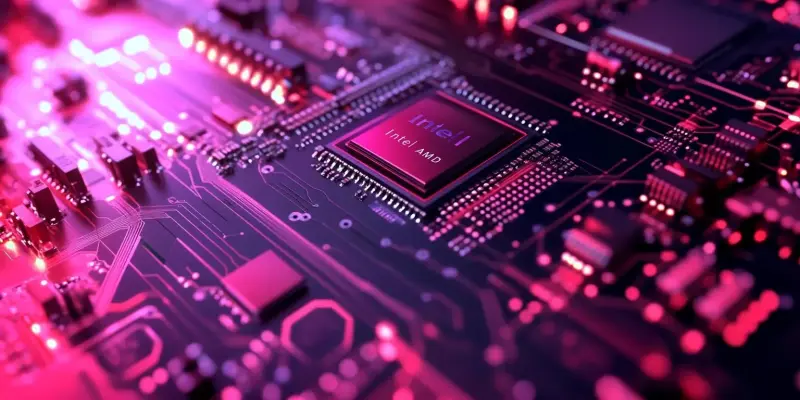The server CPU market has seen significant shifts over the past few years, but none more striking than Intel’s recent challenges and AMD’s remarkable rise. Since 2022, Intel’s dominance in this sector has been under siege, with sales plummeting over a span of just two years into 2024. A primary driver behind this decline is the fierce competition presented by AMD, coupled with the rapid adoption of specialized GPUs and AI-specific accelerators in server applications, reflecting the fast-growing influence of artificial intelligence in the tech world.
AMD’s Strategic Advances and Market Gains
AMD capitalized on this shifting landscape, leveraging their Epyc processors and Instinct GPUs to secure a stronghold in the data center market. By 2024, AMD reported a staggering 122% increase in year-over-year sales, catapulting them to the top of the data center industry. This success didn’t happen by chance. AMD’s aggressive pricing strategy and superior performance in AI-related tasks significantly contributed to their ascendancy. Their ability to deliver cost-effective solutions without compromising on high performance made their offerings particularly enticing to a market increasingly driven by AI workloads and data-driven applications.
Intel, recognizing the threat posed by AMD and the growing appeal of AI-specific hardware, took notable action in early 2025. A major part of their strategy included slashing prices for their Xeon processors by up to 30% in a bid to reclaim lost market share. Nevertheless, while this move aimed at making their products more competitively priced, it raised concerns about the potential impact on profit margins. Simultaneously, Intel’s Data Center and AI (DCAI) group achieved some revenue improvement, attributed to increased sales of high core count products. Yet, this growth was insufficient to counterbalance the overall decline in server volume driven by reduced demand in a highly competitive market.
Future Challenges and Dynamic Market Forces
In the past few years, the server CPU market has undergone substantial transformations, with Intel facing unexpected challenges and AMD experiencing a significant surge. Intel, once the undisputed leader in this domain, has seen its market share plunge dramatically from 2022 to 2024. This downward trend can be attributed to strong competition from AMD, which has made impressive strides in enhancing its technology and market presence. Additionally, the computing landscape is evolving rapidly with the increasing integration of specialized GPUs and AI-specific accelerators in server applications, underscoring the rising significance of artificial intelligence. AI’s influence in the technology sector is undeniable, and it’s pushing the demand for more specialized computational solutions. Intel, once synonymous with server CPUs, now faces the pressing need to innovate and adapt to maintain relevance in an increasingly competitive market. Meanwhile, AMD’s upward trajectory highlights its strategic advancements and ability to capitalize on current technological trends.

